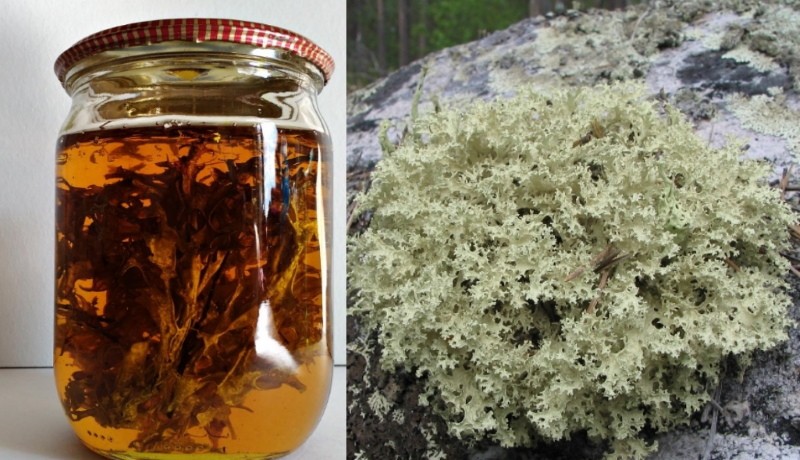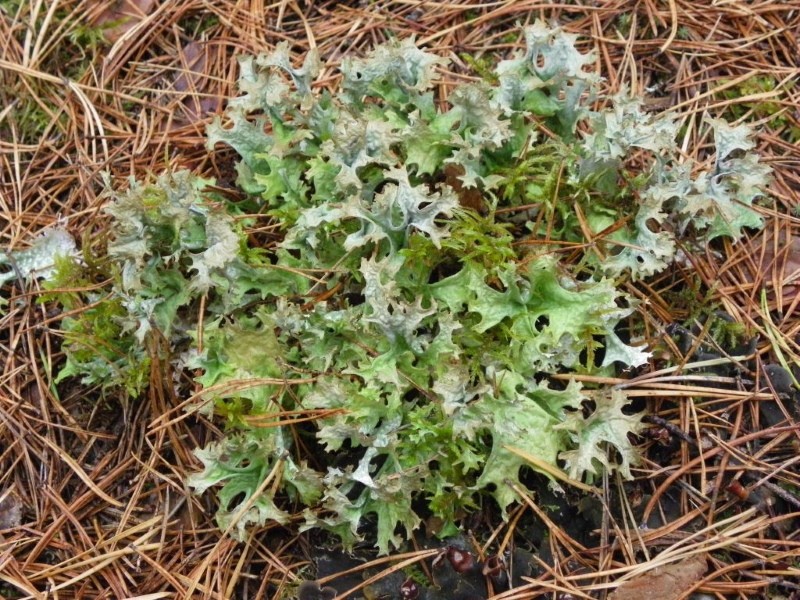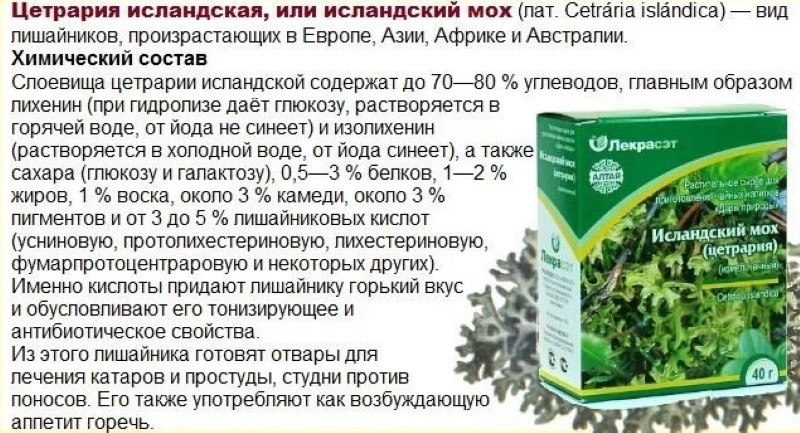The most powerful natural antibiotic - cetraria, medicinal properties and contraindications
 This plant is better known as Icelandic moss, although it has a very distant relationship to it. The botanical name of the herb that works wonders is tsetraria, the medicinal properties and contraindications of this culture are recognized even by official medicine. In pharmacies, you can buy not only dry moss, but also cough medicines based on it, for example, Pectolvan and Herbion syrups or Isla tablets. But cetraria became famous not only for its antitussive and antiviral properties. Its chemical composition is so rich that the plant is considered a natural antibiotic that can help with many diseases. What kind of plant is it and how is it famous?
This plant is better known as Icelandic moss, although it has a very distant relationship to it. The botanical name of the herb that works wonders is tsetraria, the medicinal properties and contraindications of this culture are recognized even by official medicine. In pharmacies, you can buy not only dry moss, but also cough medicines based on it, for example, Pectolvan and Herbion syrups or Isla tablets. But cetraria became famous not only for its antitussive and antiviral properties. Its chemical composition is so rich that the plant is considered a natural antibiotic that can help with many diseases. What kind of plant is it and how is it famous?
Tsetraria - medicinal properties and contraindications

It is noteworthy that Icelandic moss grows only where there is unpolluted air. Therefore, the plant is environmentally friendly.
The moss shoots are small, from 4 cm to 10 cm high, beautifully curled and painted in different colors. The upper part of the blades is lighter, white or greenish, while the lower part is brown. Moss is harvested only in dry weather, tearing it off from stumps or soil. It is cleaned of plant residues and dried, but not washed.
Icelandic moss contains a lot of vitamins A and B, various minerals, bitterness, carbohydrates, enzymes. Almost 70% of the composition is mucus, but the most valuable are lichen acids, especially usnic acid. It is she who endows the culture with medicinal properties and turns it into a natural antibiotic. By the way, usnic acid is found only in lichens.
Useful properties of Icelandic moss
 In folk medicine, tsetraria is used for the preparation of decoctions, infusions and teas. They have a healing effect on the body, namely:
In folk medicine, tsetraria is used for the preparation of decoctions, infusions and teas. They have a healing effect on the body, namely:
- relieve various kinds of inflammation;
- help with coughs, treat bronchitis, pneumonia, whooping cough;
- destroy the tubercle bacillus;
- kill flu and cold viruses;
- slow down aging;
- treat skin diseases;
- effective for all diseases of the gastrointestinal tract;
- eliminate bowel disorders;
- increase potency;
- promote losing weight.
In what cases it is not recommended to be treated with tsetraria
 Icelandic moss has few contraindications and most often they relate to acute periods - exacerbation of diseases such as:
Icelandic moss has few contraindications and most often they relate to acute periods - exacerbation of diseases such as:
- colitis;
- gastritis;
- asthma;
- pancreatitis;
- cholecystitis.
In addition, you should not take decoctions or infusions of cetraria at high temperatures (above 39 ° C).And also with increased intestinal tone and spastic constipation. Special care should be taken in the presence of autoimmune diseases.
It is not recommended to treat children under 1 year of age with moss, pregnant women and especially nursing ones. Tsetraria in decoctions can change the taste of milk and add a bitterness to it, which babies will not like.
If you follow the dosage and do not get carried away with moss for a long time, then the plant is more beneficial. With prolonged use, Cetraria can provoke liver intoxication or irritation of the gastric mucosa. Sometimes, but very rarely, an individual intolerance to the plant or its components (mainly acids) is manifested.